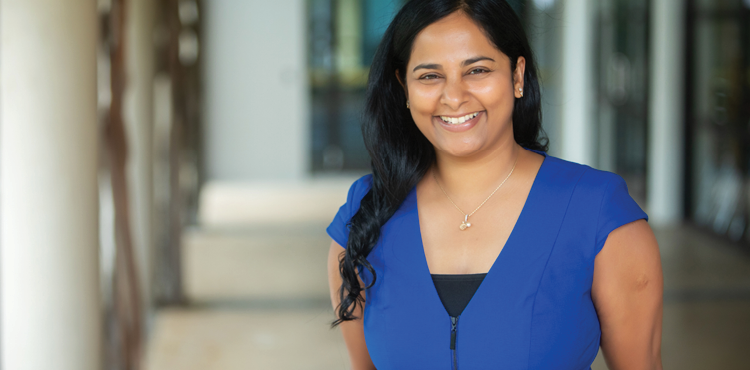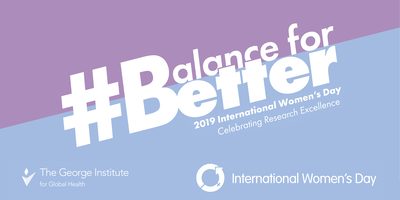
Rohina Joshi: International Women's Day 2019 Profile
Rohina Joshi’s research explores how to improve health information systems in low and middle income countries and strengthen the medical workforce in regions without doctors. She first joined The George Institute for Global Health in 2003 to complete her PhD and returned after a three-year career break in 2012 to build on her previous research.
Rohina grew up on a medical college campus in India surrounded by medical professionals. Her upbringing left little doubt as to what professional she would pursue.
“I would see my mum, a dietician, educate her staff about the ill-effects of tobacco, and my father, a dentist, promote oral health among school children and travel to remote villages to provide better access to oral health care. All these influences motivated me to enrol in medicine and take up public health.”
Rohina took a long career break to begin her family before returning to the research sector to focus on community health worker programs for non-communicable diseases in low and middle income countries, and how the health system can support them. She is also working on an implementation project to strengthen health information systems across 12 countries.
“My hope is to see policy changes that create a health system that supports community health workers and truly empowers them. I would like to see better data for health policy and planning in resource-poor regions of the world, and true stakeholder representation in research.”
Rohina says it wasn’t easy returning to the workforce after her extended maternity leave.
“The years immediately after a career break are tough. For me, it was the lowest point in my career. So, providing support in terms of career planning, flexible work hours, pay parity, and a supportive working environment go a long way to motivate and retain women in research. Having a supportive partner is essential in this journey.”
Reflecting on this year’s International Women’s Day theme, #Balanceforbetter, Rohina says her thinking has evolved over the years.
“I have strived for work-life balance over the last few years and now have moved to the term ‘work-life integration’. It is more realistic in a job which goes across several time zones, in an age where technology helps us connect wherever and whenever, and flexible work hours help us manage our lives at home and work.”
Her advice for other women thinking about getting into medical research?
“If you have a passion for research, go for it and have a mentor or supporter who believes in you.”
Read more from Rohina on Twitter at @RohinaJoshi



